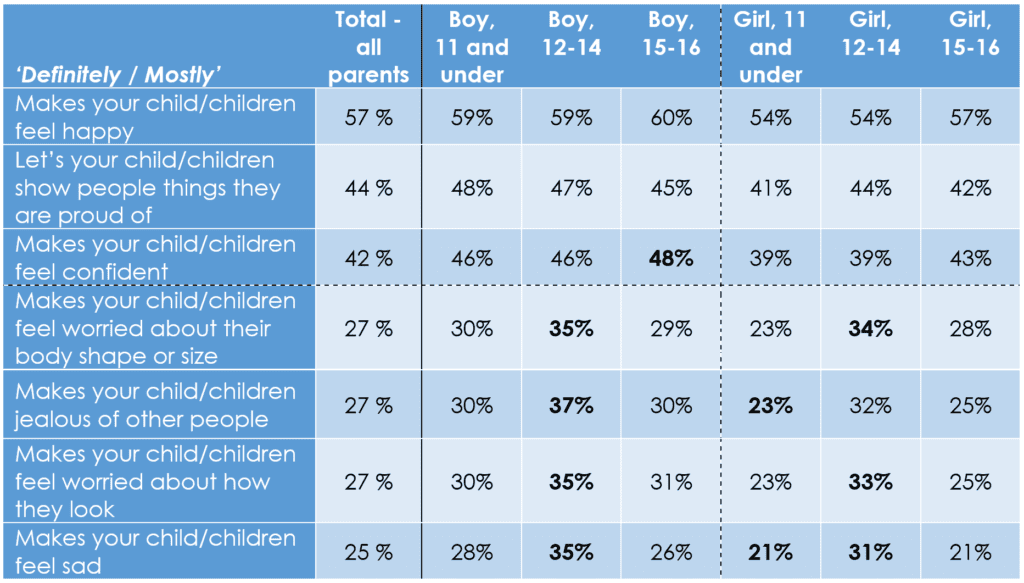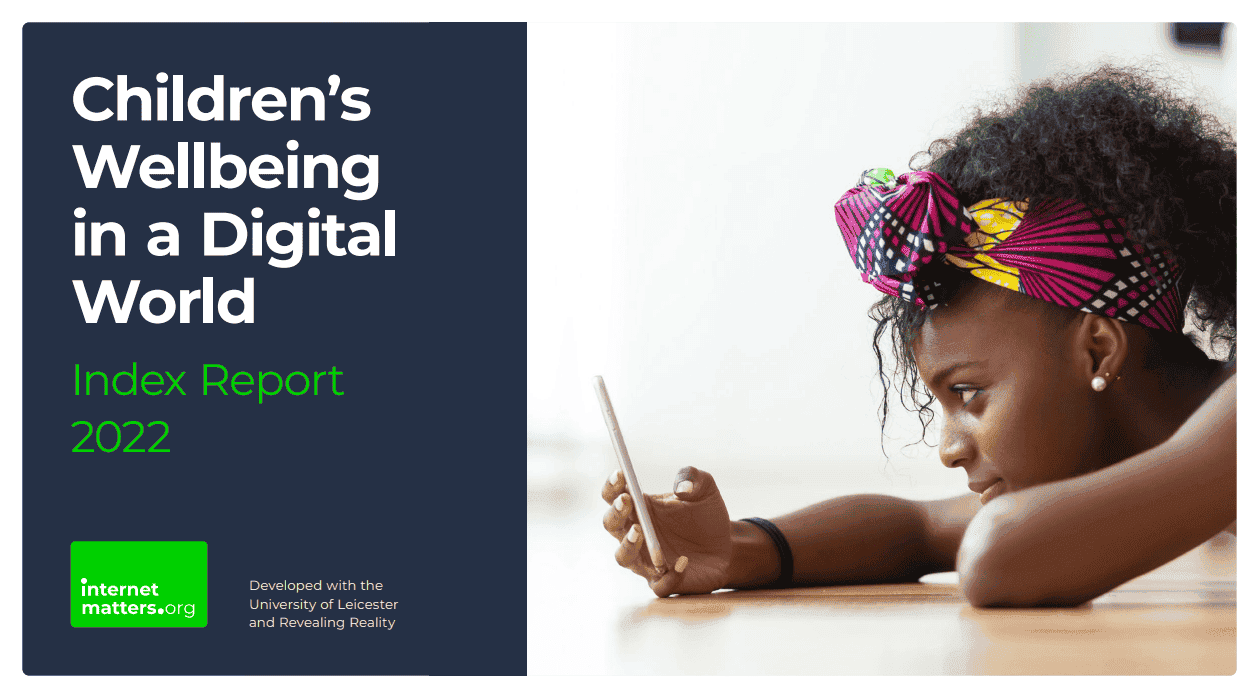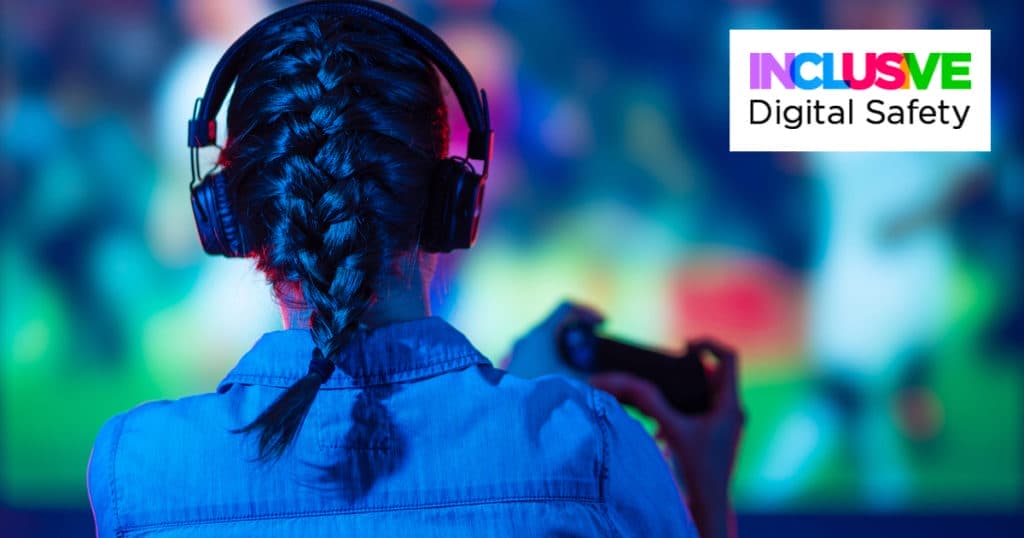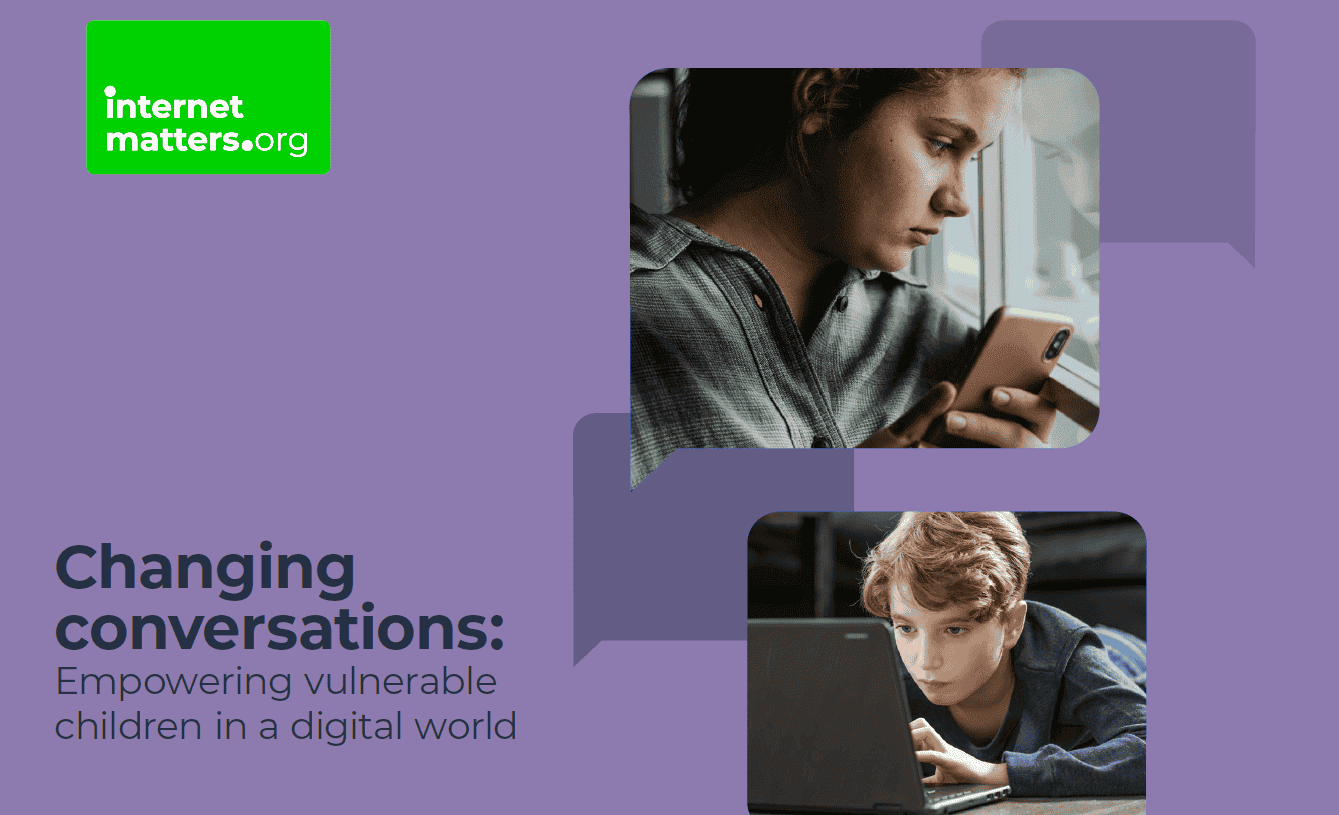Parents see greater emotional impacts than children
We asked parents to reflect on what being online does to children’s wellbeing, asking children the same for themselves. There was an interesting split in the interpretation about being online. As expected, parents were more likely to show concern about their children’s usage of the internet compared to children themselves.
The starkest difference was around ‘feeling sad’ – a complex emotion that around a third of parents (31%) link to their children’s online use. However, less than one in five children (18%) share this view.

Table 2 Thinking about how being online and access to digital technologies impacts your child/children’s/your own wellbeing, when your child/children goes online, does it do any of these things? Taken from June-22 wave; Parents N-2,001 (‘Yes, definitely’, ‘Yes, mostly’ excluding ‘a mix’ responses to make comparable with Children responses), Children N-1,000 (‘Yes, definitely’, ‘Yes, mostly’)
Positive versus negative impacts
The positive impact of the internet comes through more than negative impacts for both parents and children. ‘Feeling happy’ was the most selected option for both parents (80%) and children (89%). Also, ‘showing things they are proud of’ was widely agreed with (63% parents, 72% children).
Parents with greater confidence in online safety have greater positive responses to the internet as well. For example, 84% of confident parents acknowledge the internet makes their children ‘feel happy’ compared to 72% of parents who lack confidence.
This is also true of the more negative traits. For example, 38% of confident parents say the internet makes their children ‘feel sad’. However, just 18% of unconfident parents say the same.
Parents of boys versus parents of girls
Additionally, parents of boys were more likely to identify the positive impact of the internet when compared to parents of girls. This includes feelings of feeling happy, proud and confident. Also, parents of older teen boys (15-16) were significantly more positive that the internet made their sons more confident (48% vs. 42% overall).

Table 3. Thinking about how being online and access to digital technologies impacts your child/children’s wellbeing, when your child/children goes online, does it do any of these things? Taken from June-22 wave; Total – all parents N-2,000. Boy, 11 and under N-771, Boy, 12-14 N-340, Boy, 15-16 N-308, Girl, 11 and under N-627, Girl, 12-14 N-297, Girl, 15-16 N-286. Bold indicates significant difference against the Total score.
However, parents of boys were also more negative about the internet’s impact, counteracting this positivity. Parents of 12–14 year old boys in particular scored higher across all the negative issues (i.e., body shape, jealousy, worried about looks and feeling sad).
This correlates with the lower levels of confidence in staying safe online for this group. Just 35% of 12-14 year old boys feel ‘very’ or ‘totally’ confident in staying safe online, compared to 39% for girls aged 12-14 and 48% for 15-16 year old boys.
Parents of girls aged 12-14 had similar concerns to parents of boys of the same age. Parents of younger girls (<11) were generally less critical about the role of the internet on their children. For instance, they scored lower on the negative impacts of jealousy (23%, 27% total) and feeling sad (21% vs. 25%).
Children’s responses
Children were asked the same set of questions about the impact of the internet on their wellbeing, but the difference between genders was less obvious. The only significant differences between genders were seen in ‘makes you feel confident’ (71% amongst boys, 64% for girls) and in ‘makes you feel worried about how you look’ – this time lower for boys (22%) compared to girls (31%).
Similarly, when split by age, the only significant differences were in impacts more associated with older teens. These included ‘worried about how you look’ (24% for under 13s and 31% for 14–16-year-olds) and in ‘worried about body shape or size’ (22% for under 13s, 30% for 14-16).













